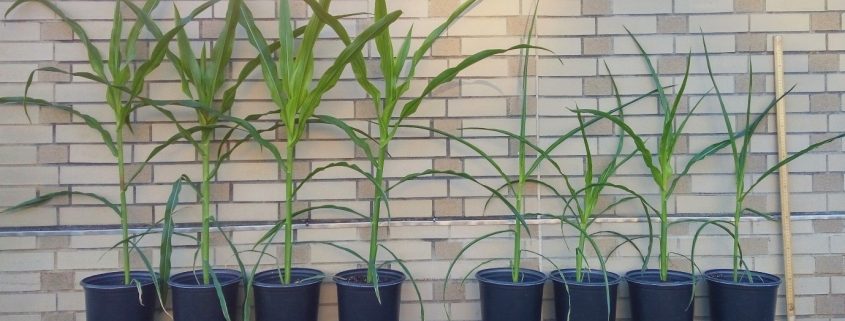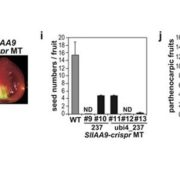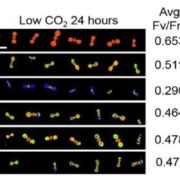Genomic imbalance: an extra chromosome arm can induce severe phenotypic and gene expression changes
By Hua Yang, James Birchler, University of Missouri-Columbia
Background: The phenotypic consequences of the addition or subtraction of part of a chromosome is more severe than changing the dosage of the whole genome. In maize, the genome can be broken into smaller segments, allowing the effect on gene expression from smaller varied regions to be examined. Also, in maize it is possible to produce haploids with an extra chromosome arm at a reasonable frequency. These “disomic haploids” provide a level of genomic imbalance that is not ordinarily achievable in multicellular eukaryotes, allowing the impact to be stronger and more easily studied.
Question: We wanted to know how the greater dosage imbalance modulates gene expression from all chromosomes in maize.
Findings: We crossed diploid plants with an extra chromosome arm to plants that induce haploids to make 17 segmental haploid disomies that covered ~ 80% of the maize genome. The identification of disomies revealed that the higher dose change (2X) of even smaller chromosomal segments has a strong detrimental phenotypic impact. Analysis of RNA expression revealed that dosage compensation (little to no change in expression despite a change in dosage of the gene) is a common phenomenon among all disomies in addition to the dosage effect for genes on the varied segment. Intriguingly, modulations of gene expression are prevalent from the unvaried chromosomal regions, which, for most of the disomies, show an inverse or negative effect as the major response to imbalance.
Next steps: Test how genomic imbalance affects the expression of small RNA and transposons. Attempt to identify single genes involved in the imbalance effects on gene expression.
Yang, H., Shi, X., Chen, C., Hou, J., Ji, T., Cheng, J., and Birchler, J.A. (2021). Predominantly inverse modulation of gene expression in genomically unbalanced disomic haploid maize. Plant Cell. DOI: 10.1093/plcell/koab029










